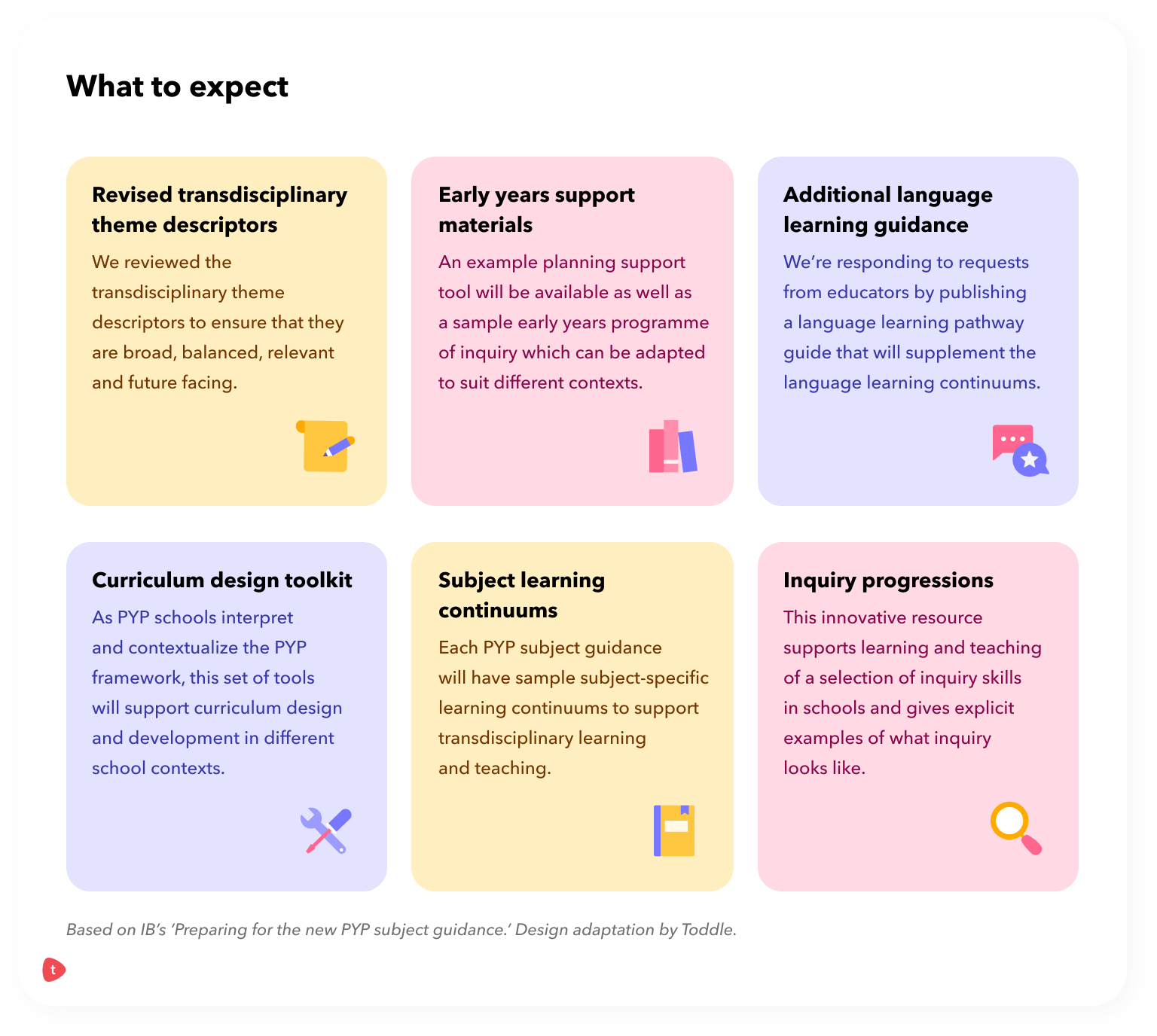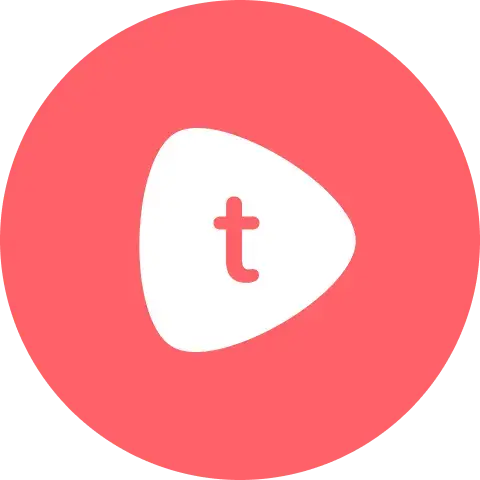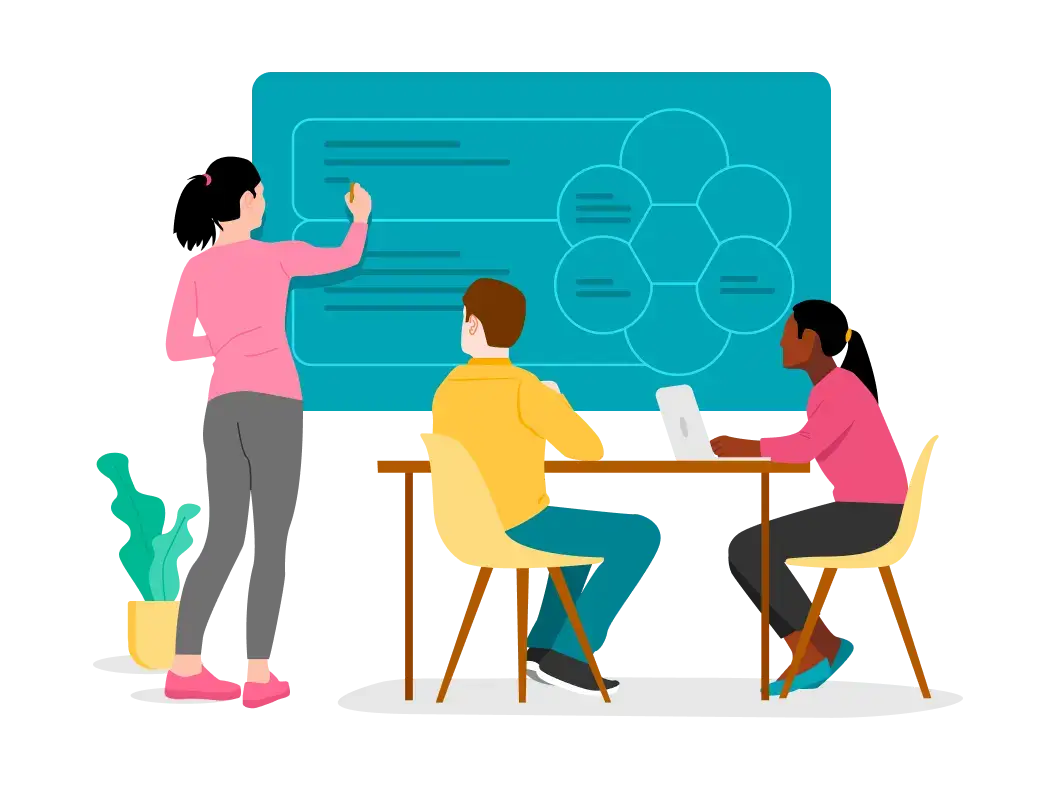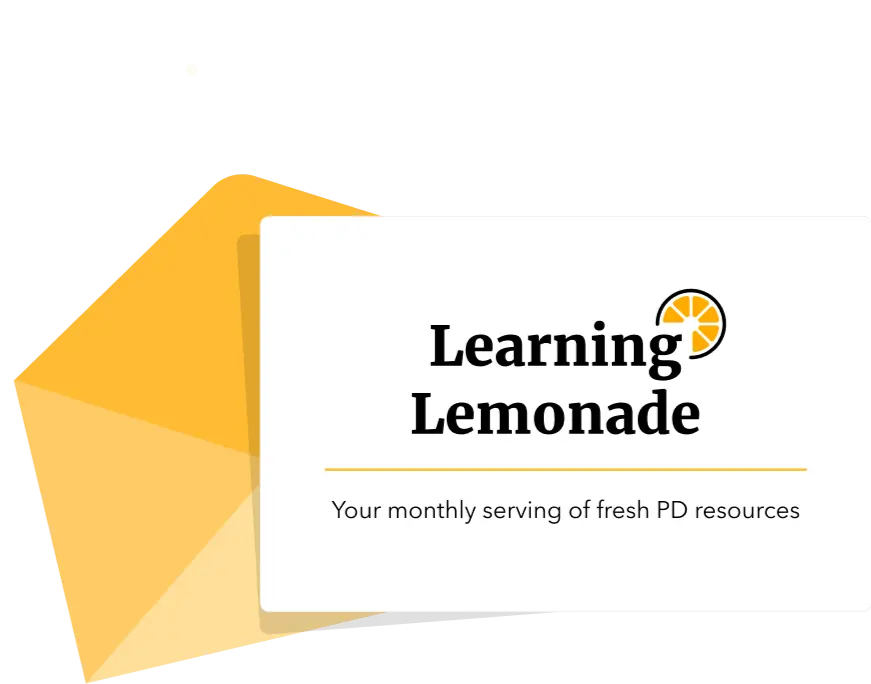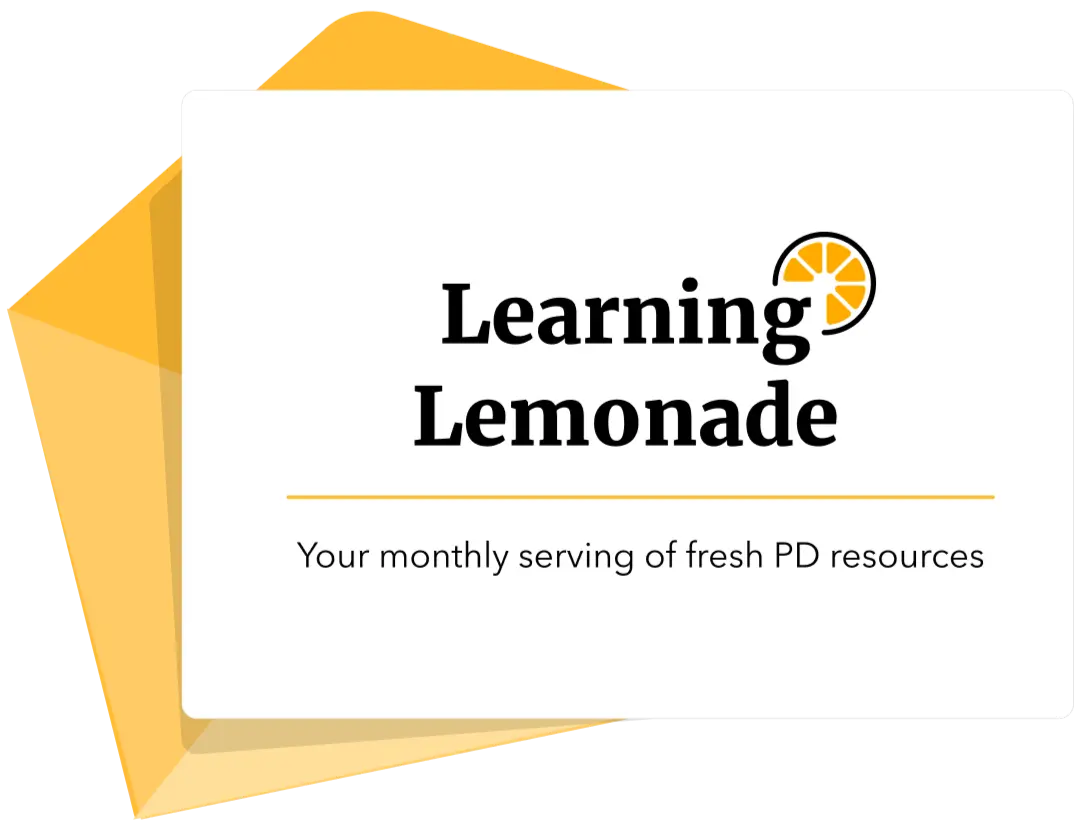Type your school name to search Shady Oak Christian School - Richmond, TX Talgarno Primary School SR Prime School W. P. Davidson High School The New School, Rome Scarborough Primary School Istek Izmir Okullari Beaumaris North Primary School, Beaumaris, VIC YTÜ Schools Owl Creek Nature Playschool Aspect Vern Barnett School, Mona Vale, Mona Vale, NSW St Michael Catholic High School - Fairhope, AL Empangeni Pre Primary Hampton High School Sharjah International Private school Al-Aqeeq International School American Section St Mary Byzantine School - Cleveland, OH Forestdale Christian School - Bryant Pond, ME UNIDAD EDUCATIVA BILINGÜE HONTANAR Seven peaks Progressive School 3 , Sofia Little boo peeps Trinity Lutheran School - Elkhart, IN North Kansas City High School Immaculate Heart Of Mary School - Atlanta, GA O Castro International British School Hansa-Gymnasium, Hamburg-Bergedorf Blue Haven Public School, Blue Haven, NSW Capital international school Toowoomba State High School Mariner High School baker middle Mount Carmel-Holy Rosary School - New York, NY Bossley Park Public School Gs Le Cartésien Packer Ridge Academy - Lehighton, PA Discovery School, Florida Springbrook High School Narranga Public School, Coffs Harbour, NSW St George's International School St Joseph's School, Kununurra, WA Figtree Heights Public School Rothesay Netherwood School-Rothesay,New Brunswick Inland Conservatory For The Performing Arts School - Ontario, CA Northam Senior High School Ravenshoe State School - Junior Campus Guangzhou International Primary School Huangpu ZWIE St Johns Episcopal School - Rancho Santa Margarita, CA Heritage Xperiential Learning School Soong Ching Ling School of Shanghai Yuille Park P-8 Community College Art teacher Cornwall Hill College Boca Raton Community Middle School Maranatha Christian Schools - San Diego, CA École secondaire de Rochebelle-Sainte-Foy,Quebec St Saviour's Primary School The Children'S Courtyard Inc. - New Braunfels, TX Shanghai Hongrun Boyuan School Dakota Memorial School - Minot, ND Holy Spirit College - Edmonton Campus, Edmonton, QLD Byron Bay High School Wallacestone PS Nepean Special School, Seaford, VIC Brisbane Youth Education and Training Centre, Wacol, QLD Jesus Is The Way Christian Academy - Philadelphia, PA Wodonga Senior Secondary College-Seymour Flexible Learning Centre, Seymour, VIC Discovery Days - Allen, TX All Hallows Catholic School Gympie Special School, Gympie, QLD Cherwell College Oxford Holy Family Catholic School - South Pasadena, CA St Mary Catholic School - Newton, KS Wartburg State School Mount Saint Joseph High School - Baltimore, MD GEMS Winchester School - Dubai Hosanna Christian Academy - Margate, FL The Grace School - Providence, RI Plattsburg Public School New Horizon Amish School - Cambridge Springs, PA Heath Lane Academy St Mary's Catholic School, Boyup Brook, WA St Mark Evangelical Lutheran School - Lincoln, NE Faulkner Springs Christian School - Mc Minnville, TN Ropes Crossing Public School, Ropes Crossing, NSW More2nurseries Kew East Primary School, Kew East, VIC Balarang Public School 한동글로벌대학교 Emmanuel Christian School - Enid, OK Cardwell State School, Cardwell, QLD Front Range Baptist Academy - Fort Collins, CO Holy Rosary Catholic School - Flint, MI Suzhou Innovation Academy Miriam Vale State School, Miriam Vale, QLD Wooroloo Primary School, Wooroloo, WA SIS Swiss International School Basel Insight International School SANABEL ROSHDY INTERNATIONAL SCHOOL Promise Christian Preschool - Murrieta, CA Miami Beach South Pointe Elementary School-Miami Beach,Florida كلية مارتن جارسيا سانت ماري الدولية Little Ash Amish School - Sugar Grove, PA Yusr International School Makkah Woodinville Montessori School - Woodinville, WA The British International School Istanbul Madison Ridgeland Academy - Madison, MS Morna International College British Council, Bogota Black Rhino Academy Scintilla Charter Academy East Nashville Magnet Middle School Emmaus College, Vermont South, VIC Montessori School Of Baton Rouge - Baton Rouge, LA Faith Christian Academy & Preschool - Orlando, FL Commission Scolaire des Appalaches-Thetford Mines,Quebec Guidepost Montessori At Las Flores - Rancho Santa Margarita, CA Woolaning School, Litchfield Park, NT Leeds School and College Cunae international school The Origami Concept School Manassas Adventist Preparatory School - Manassas, VA Byron Bay Public School Sherborne Girls Mrs Bs Book Nook - Early Years Language Specialist St Ignatius Loyola Early Childhood Center - Spring, TX Bahr Academy Mutiara Harapan Islamic School Thorp Academy Jinhua Jiangnan High School Salpointe Catholic High School - Tucson, AZ Cornwall School Ellacombe Li Po Chun United World College of Hong Kong South Lake Primary School, South Lake, WA Oriental Cambridge Ben Xi International School Glenvale State School, Glenvale, QLD Neuhof School - Mountain Lake, MN Realms Of Inquiry - Taylorsville, UT Richardson Primary School Port Fairy Consolidated School Oakland Montessori Academy - Novi, MI Eastgate Academy-Riverview,New Brunswick Ayr State School, Ayr, QLD St Mary's Catholic Primary School, Bundaberg, QLD Secret Harbour Primary School, Secret Harbour, WA Meadow View School - Spartansburg, PA Lennox Head Public School I Liceum Ogólnokształcące Dwujęzyczne in Gliwice St Rose Of Lima School - Cuba City, WI Solway Community School Leopold Primary School Primrose School Of Breckinridge Park - Richardson, TX Oxford Falls Grammar School, Oxford Falls, NSW LBWF Towamba Public School, Towamba, NSW Somerset College, Mudgeeraba, QLD Shalva High School - Lakewood, NJ Sandy Hollow Public School, Sandy Hollow, NSW Floyd Central High School-Floyd Knobs,Indiana Heywood Consolidated School, Heywood, VIC SEDA College (Victoria) - AFL- Preston Beacon Day School - La Palma, CA The High School at Vancouver Island University Jeparit Primary School, Jeparit, VIC GALAXY INTERNATIONAL SCHOOL Open Door Christian School - Graham, TX Naradhan Public School, Naradhan, NSW Livingston Montessori School - Livingston, TX Rak Academy Ipk School Mount Egerton Primary School, Mount Egerton, VIC The Maddux School - Rockville, MD The Holy Name Of Jesus Academy - Massena, NY Walter Hines Page High School St Helena School - Bronx, NY St Colman's Catholic School Istek Acibadem Schools St Francis Xavier's Regional Catholic School Prepa Tec Los Angeles High School Alice Springs School Of The Air, Alice Springs, NT Hill Spring International School Winter Haven Adventist Academy - Winter Haven, FL westside Neighborhood School GEMS Our Own Indian School St Vincent De Paul - Peoria, IL Trinity Baptist School - Williston, VT INSTITUTO ALEMAN PUERTO MONTT Indie School, Logan cc mason Rye Primary School, Rye, VIC Faith Christian Academy - Orlando, FL Bradshaw Primary School, Gillen, NT Bakersfield Christian High School Templeton Elementary The Key To Learning - Clermont, FL Boulevard School - Woodland Hills, CA Emmanuel Baptist Academy - Valparaiso, IN Brisbane Academy - Charlotte, NC Stepping Stones School Davallia Primary School, Duncraig, WA Park Orchards Primary School Upward Adventist School - Flat Rock, NC Spanish River Community High School Learning Skillls International School Academia Británica Cuscatleca Ajb Mitaka And Nakano Orbix International School Batu Pahat Little Keswick School - Keswick, VA William J. Palmer High School-Colorado Springs,Colorado Beverley District High School, Beverley, WA Riverstone Montessori Academy - Marietta, GA St Aloysius Education Center - Cincinnati, OH Little Amigos Childcare Center Premier Public High School. Pakpattan Cheshire Academy Elderslie Public School, Elderslie, NSW San Miguel Preschool neps Trivandrum International School De La Salle College, Ashfield Northland Christian School - Flagstaff, AZ Wentworth Learning Centre Childcare Nawabegh International School St John Bosco Catholic Primary School, Engadine, NSW Apostolic Gospel Academy - Kingsport, TN Green Children'S House - Pompano Beach, FL The Pegasus School - Huntington Beach, CA Boronia Heights Primary School, Boronia, VIC Silver Spring International Middle School-Silver Spring,Maryland St Clare Of Montefalco School - Grosse Pointe Park, MI Holy Family Catholic School - Auburn, WA St Ludger Elementary School - Creighton, NE St Scholastica Parish School - Woodridge, IL ABQ SEEB INTERNATIONAL SCHOOL northbridge ALBA Elementary School-Milwaukee,Wisconsin Yuleba State School, Yuleba, QLD SmartOz Kidz St Cornelius School - Chadds Ford, PA Mount St Patrick Primary School The City School, Vehari Campus Mount hood community college Victoria Point State High School, Victoria Point, QLD Primrose School Of Clear Lake - Houston, TX The SCOTS PGC College Beth Haven Christian Academy - Crossville, AL EduChina International Group Our Lady of Mount Carmel Catholic Primary School Bethel Mennonite School - Gladys, VA St Anthony School - Yonkers, NY Muhammadiyah Al Amin Bojonegoro Majella Catholic Primary School, Balga, WA St Bernadette's Primary School, Castle Hill, NSW Oxford Online School Work Skills Learning Temple Christian High School - Sumter, SC Churchlands Senior High School Dora Creek Public School Il Nido Montessori Brightmont Academy - Castle Pines - Castle Rock, CO Liceo Panamericano (Samborondón) Falcon Primary School Greenfields School St John'S Methodist Kindergarten - Aiken, SC St Paul Lutheran School - Bloomer, WI Pechersk School International West Hills Montessori School-Lake Oswego - Lake Oswego, OR Vision St Sylvester Central School - Woodsfield, OH KAASTHAMANDAP A LEVEL ACADEMY Happy Kids International School UM FIRST CITIZENS COLLEGE York Academy Regional Charter School-York,Pennsylvania Eton College Delhi Public School, Varanasi Gurnee Christian Academy - Gurnee, IL Andino School Birdwood High School Bentley Primary School, Bentley, WA RAMSES INTERNATIONAL SCHOOL Joshua Adventist Multigrade School - Joshua, TX Gross Schechter Day School - Pepper Pike, OH Novi High School Dubbo Public School, Dubbo, NSW Newrybar Public School, Newrybar, NSW Foreign Language Academy Naranga Special School, Frankston, VIC Virginia International Academy - Front Royal, VA St Gerard Campus Inc - St Augustine, FL Coleg Gwent Pontypool Campus Watsonia Primary School, Watsonia, VIC Dandenong High School-Myuna Secondary Teaching Unit, Doveton, VIC Ignite Learning Center - Myerstown, PA Roycemore School - Evanston, IL Not decided Best Memories Academy - Orlando, FL Bilingual British School Portage Central High School Heritage Baptist Christian School - Locust Grove, GA Charles La Trobe P-12 College-The Pavilion Campus - Preston East, Preston East, VIC Children'S House Of Bucks County - Fairless Hills, PA Holy Trinity Annex @ St Peter School - Poughkeepsie, NY Kenmore West High School Mount lane day care nursery Guidepost Montessori At Naperville - Naperville, IL St Mary's Primary School, Maryborough, QLD Our Lady's College El Dorado High School-El Paso,Texas Village Academy Crosslinks Astra Zeneca Child Development Center - Wilmington, DE Rawson Primary School Presidential Meadows Elementary Port Lincoln Primary School, Port Lincoln, SA Warwick Kids Academy - Newport News, VA Nysarc Inc-Suffolk Chapter - Bohemia, NY Dublin High School Mount Larcom State School Center For Education - Marlton, NJ AII Learning School Pueblo West Christian Academy - Pueblo, CO Tumbarumba Public School, Tumbarumba, NSW Joyland Preschool/Childcare - Dublin, OH Buxton School - Williamstown, MA Roehampton Cluster Children's Centre The Nueva Middle School - Hillsborough, CA Mesivta Nezer Hatorah - Lakewood, NJ Steppen Stone Academy - Limestone, TN The Hyderabad Public School, Begumpet Okinawa International School Virtual staffing solutions Commission Scolaire Marguerite-Québec City,Quebec Vestal High School-Vestal,New York Clevedon School Spreyton Primary School Lincoln Center Elementary-South St. Paul,Minnesota Kelvin High School Impacting New Generations Academy - Warner Robins, GA Pontificia Universidad Javeriana Kathmandu Euro IB World School Our Lady Of Refuge Catholic School - Eagle Pass, TX Linden Grove School - Cincinnati, OH Pius X High School - Lincoln, NE Queensland Academy for Creative Industries, Kelvin Grove, QLD Queen Of Apostles School - San Jose, CA Greenbushes Primary School, Greenbushes, WA The Bush School - Seattle, WA Horizon International Bilingual School President Kennedy School Indian Flower Kids School XV gimnazija Melbourne Archdiocese Catholic Schools Children’s International School St Peter Claver Preschool & Kindergarten - Simi Valley, CA St John Vianney's Primary School, Waramanga, ACT Blairmount Public School, Blairmount, NSW St Mary School - Centralia, IL Living Springs Christian School - Mc Veytown, PA Early Childhood Development Center Coastal Middle School-Savannah,Mississippi Collingwood Park State School, Collingwood Park, QLD The Rainforest School Big Cypress Elementary School Whalan Public School Moonbi Public School American International Prep School - Ortonville, MI Woodlands Academy Tucabia Public School, Tucabia, NSW St Andrew School - Drexel Hill, PA St Charles Elementary School - Youngstown, OH Al Hussan International School Khobar Faith Christian Academy - Roanoke, AL Focus Educacion Sudamericana, Bahia Blanca Mlc Preparatory Academy - Miami, FL St Raymond Of Penafort School - Philadelphia, PA COLEGIO LOS OLIVOS-PORTEZUELO ljubljana international school Park School For Girls Middlebury Union High School-Middlebury,Vermont Kardinya Primary School Urban Christian Academy - Savannah, GA SUN Academy New Conquest Mennonite School - Penn Yan, NY Cyril Jackson Senior Campus, Bassendean, WA Loxton High School, Loxton, SA 3Blue Education Collège De La Salle Lawrence D. Bell High School-Hurst,Texas John Adams High School-South Bend,Indiana The Community School Inc. - Teaneck, NJ Aquinas Academy - Livingston, NJ College Enko Riviera Brightmont Academy - Phoenix, AZ Mount Crosby State School, Karana Downs, QLD Trinity Christian School - Montville, NJ Appletree Ii School - Vienna, VA Global Jaya School Huanui College Fishburne Military School - Waynesboro, VA Nord Anglia International School, Hong Kong Acts Christian Academy - Farmington, NM Amazonas English Academy St Pauls High School - Covington, LA Yuma Lutheran School - Yuma, AZ The Studio School (L.P. Savani Academy-Day Boarding) Bellingen High School Government High School Muhammad Pur Sansaran Raising Knowledge Academy Inc. - Orlando, FL SEDA College WA (Fremantle), Fremantle, WA Sefton Infants School, Sefton, NSW Cantwell Sacred Heart Of Mary - Montebello, CA Beaconsfield High School Politz Hebrew Academy - Philadelphia, PA Garstang St Thomas School Nusery Bourbon Christian School - Bourbon, IN Appin Park Primary School Fresno Adventist Academy - Fresno, CA Bnot Yisrael Elementary & High School - Lakewood, NJ Mernda Central P-12 College, Mernda, VIC Immaculate Conception / Olph - Everett, WA Tailem Bend Primary School The American School of Doha Dalyellup Primary School Oglethorpe Sda School - Oglethorpe, GA Cataldo Catholic School - Spokane, WA The King'S School, Tudor House Ranch View Middle School Orroroo Area School Globed Ozford College, Melbourne, VIC Osbornes Flat Primary School Miling Primary School, Miling, WA Maida Vale Primary School Kırmızı Çizgi Schools Croydon Community School, Croydon, VIC Collège Enko Riviera St John School - Wellesley, MA Fountainhead School Veritas Christian Academy - Bellaire, TX Wembley Primary School, Yarraville, VIC Central school dubai St Mary Catholic School - Mansfield, OH Broadford Primary School International School of Brussels school beyond limitations Thomas Acres Public School Woady Yaloak Primary School, Smythesdale, VIC St Louis Catholic School - Nokomis, IL Clifton Springs Primary School, Clifton Springs, VIC Cleveland Academy - Cleveland, TN IIS las américas Manhattan ASPAEN GIMNASIO CARTAGENA DE INDIAS SRS Hoggs Hollow - La Canada Flintridge, CA Oxford High School-Oxford,Michigan Delhi Public School Bangalore North Presbyterian Ladies' College Sydney, Croydon, NSW Royal Orchard First School. Khalifa IMS EDIDOT COLLEGE Rose Park Primary School, Rose Park, SA Studley Infants' School Centro de Enseñanza Técnica y Superior Indian school wadi kabir Cambridge Jaiswal International School North Beach Primary School Good Shepherd Christian Academy - Louisville, OH All Souls Catholic School - Sanford, FL Strathfield North Public School The School of Total Education, Warwick, QLD Buds 2 blooms pre school Grace Episcopal Day School Cedar Hill Prep School - Somerset, NJ Torrey Ridge Mennonite School - Penn Yan, NY A Step Up Academy - Jenkintown, PA Harrah Community Christian School - Harrah, WA Learning Ladders Woodfield School Bloomfield River State School Antofagasta International School The Grayson School - Radnor, PA M.C.T.M. Chidambaram Chettyar International School, Mylapore THE DISCOVERY ACADEMY St Joseph's Catholic School, Mount Isa, QLD Ss Simon And Jude Cathedral School - Phoenix, AZ Portland Christian School - Louisville, KY The Ark At Avanti St Anthony's School, Alexandra Hills, QLD SEDA College (Victoria) - Multi Bendigo, Kennington, VIC Booleroo Centre District School, Booleroo Centre, SA Lady Gowrie Head Office Vandegrift High School Wangi Wangi Public School Scots All Saints College, Campus West, Bathurst, NSW Pulham primary school Emerald Presc Crusoe 7-10 Secondary College Bendigo Teaching Unit South East Language Development Centre - Armadale Campus, Armadale, WA Christopher Whitehead Language College International Berckley School Mountainside High School-Beaverton,Oregon Kindercare Learning Center - San Dimas, CA Grays Harbor Adventist Christian School - Montesano, WA 6-7 years Cypress Christian EXCELLENT PEARLS SCHOOL Dillingham Adventist School - Dillingham, AK Northern Beaches Secondary College Cromer Campus The American School Foundation, A.C. Ignatius Park College Kristin Kindergarten Montessori Children'S House - Columbus, OH St Anthony's Catholic Primary School, Picton, NSW Accotink Academy Preschool - Springfield, VA Garfield Academy - Salt Lake City, UT Mount Calvary Lutheran School - Redding, CA Persimmon Early Learning Academy Llc - Gainesville, FL St Johns Park Public School, St Johns Park, NSW écoles enko Liceo Scientifico Statale 'N. Sensale' Kangaroo Island Community Education - Penneshaw Campus, Penneshaw, SA Emeb Fausto dos Santos Rodrigues Kaumeya international school École secondaire catholique l'Essor-Tecumseh,Ontario Glenridge Middle School Coddle Creek Elementary School Our Lady Of Sorrows - Birmingham, AL Modern Knowledge School Farmview Montessori Garden - Hamilton, OH Trinity Lutheran College, Ashmore, QLD Gan Israel Preschool - Tarzana, CA Dandaragan Primary School Spaulding Catholic School - Alton, IA Bishop Luers High School - Fort Wayne, IN Haugesund international school École St-Noël Our Lady of the Rosary Catholic Primary School, Waitara, NSW Khartoum International Community School J.T. Hutchinson Ib World Middle School Santa María Reina alqeyam charter school Boulder Knoll Montessori School - Cheshire, CT Ayr State High School, Ayr, QLD primary/The Egyptian japanese school in Redesia Holy Cross Regional Catholic School - Collegeville, PA Canberra High School Livingstone Adventist Academy - Salem, OR Elite IB School South Forsyth High School-Cumming,Georgia Chatsworth State School, Chatsworth, QLD English Rose Day School - Washingtonville, NY St Monica's College - Dalton Road Campus Mount Lewis Infants School Solid Rock Community School - Tarpon Springs, FL Linthorpe Community Primary School Port St. Lucie High School Thornleigh West Public School Hall Cross Academy Victory Baptist Academy - Selinsgrove, PA JTIS Broomhill Bank School North St Thomas more Primary Letchworth Darlington Borough Council Aspen Heights British School Guidepost Montessori School At Brushy Creek - Cedar Park, TX Queen Of All Saints School - Saint Louis, MO MCCE Harlington Upper School ST. CATHERINE'S A LEVEL SCHOOL PRUNUS International School Thomas Alva Edison High School Busan Education University Our Lady Of Grace - East Moline, IL Sacred Heart School, Mildura, VIC Playmate Pre School Bible Believers Christian School - Lima, OH Ghk Roxburgh Park Primary School Cair Paravel Latin School - Topeka, KS Melin Flying start & Abbey Childcare Community Alternative Renewal Experience - Lake Villa, IL The Clarendon Academy Southlands School Essex Heights Primary School Oak Flats High School Cathedral - Saint Cloud, MN Redeemer Lutheran College Olinca School Peacedale Amish School - Oxford, PA Broadmeadows Valley Primary School Langwarrin Primary School, Langwarrin, VIC Young High School William Rainey Harper Blessed Sacrament School - La Crosse, WI Westmont Montessori School - Mendham, NJ Castlemaine North Primary School Loudoun Montessori School - Ashburn, VA The Presley Learning Center Academy - Tampa, FL Providence Hall Charter School Quakers Hill Public School Wandering Primary School Joliet Catholic Academy - Joliet, IL AM Naik School Apeejay School International Faith Lutheran Middle School & High School - Las Vegas, NV Rooty Hill Public School Corpus Christi Catholic High School, Oak Flats, NSW Mountain View School - Punxsutawney, PA Calen District State College, Calen, QLD Manorside Primary School Herberton State School - Primary Campus La Esmeralda Jewels School - Baltimore, MD Discovery Montessori Preschool Kindergarten - West Covina, CA Acton Imprimis Lake Travis - Spicewood, TX Greensprings School Lagos, Nigeria Loughborough High School Gutenberg Singapore School, Medan Indonesia Cardinal Gibbons High School - Raleigh, NC Norgate Elementary School Jumping Beans Liceo G. Carducci - Bolzano Isabel de Godin Lahr-Well Academy - Edwardsville, IL St. Francis of Assisi Emirate National School MBZ Collegedale Adventist Middle School - Collegedale, TN Gateway Woods School - Leo, IN Horizon Private School Emerton Public School, Emerton, NSW Sir Winston Churchill Secondary School, Vancouver Victoria Road Primary School, Lilydale, VIC Wesley Christian School - Allen, KY Bryn Celynnog Comprehensive School Himalayan WhiteHouse International College Attadale Primary School, Attadale, WA Cardinal Newman High School - Santa Rosa, CA Wondai State School, Wondai, QLD St Dominic's School, Innaloo, WA Franklin International Exploratory Academy-Dallas,Texas II Liceum Ogólnokształcące in Białystok St Joseph Catholic School - Corydon, IN Bourke Public School, Bourke, NSW Enfield County School for Girls LEONCIOPRADO Escola da A.P.E.L. Plunkett Street Public School, Woolloomooloo, NSW Bass Memorial Academy - Lumberton, MS Burwood Heights Primary School, Burwood East, VIC Newstead College, Newstead, TAS Temecula Montessori Academy - Temecula, CA Good Shepherd Christian School Cedar Park Christian School-Lynnwood Campus - Lynnwood, WA vegas vista Immaculate Conception School - Jackson, MO St Edward The Confessor Parish School - Dana Point, CA Glenwood State School St George Grade School - Erie, PA Kokopu Brooklyn Amity School - Brooklyn, NY Tinonee Public School, Tinonee, NSW Mt Pleasant Christian, Inc. - Baltimore, MD Chapman Primary School Mirriwinni State School Blessed Sacrament School - Madison, WI St Philip's Christian College - Waratah, Waratah, NSW ANTONIUS COLLEGE GOUDA Sunset Elementary School-Pasadena,Maryland Alpha Kids Dubai International Academy, Al Barsha Cambridge Early Years Katherine High School Saint Stephen's College, Coomera, QLD St Louis School - Clarksville, MD Bishop Lynch High School - Dallas, TX Everglades High School St Bonaventure High School - Ventura, CA Yateley School Bankstown South Infants School, Bankstown, NSW Valley Heights Christian Academy - Norwich, NY Sunny Meadows Parochial School - Locke, NY NORDFYNS EFTERSKOLE Abiding Word Lutheran School - Houston, TX Monsignor Slade Catholic School - Glen Burnie, MD Yardleys School Plymouth-Canton Montessori School - Canton, MI Shepherd Of The Hills Lutheran School - La Mesa, CA The Gryphon School, Sherborne international school dakar Missoula Valley Montessori - Missoula, MT Hills Adventist College, Castle Hill Campus Fusion Academy Manhattan - Upper West Side - New York, NY St Matthew Catholic School - Indianapolis, IN Mater Salvatoris College Preparatory School - Stamford, CT Prep school Tempe Montessori School Ltd - Mesa, AZ Emirates National Schools - Sharjah Campus Parkway Middle School-Kissimmee,Florida Faith Academy - Conyers, GA Hazel Park Preparatory Academy Hou Kong Evergreen Center - Milford, MA Our Lady of Grace School, North Beach, WA The Warriner School Covenant Day School - Matthews, NC Wallington High School for Girls nasen The Little Sweethearts Montessori St Mary'S Assumption School - Bronson, MI Joo HS Korumburra Primary School, Korumburra, VIC Illawarra Primary School, Ballajura, WA Rendelsham Primary School, Rendelsham, SA Chesterbrook Academy - Newtown, PA St Anthony's Parish Primary School, Wanniassa, ACT St Charles Borromeo Primary School - Chippewa Falls, WI Leroy Elementary-Thornton,Colorado UTC Reading Nelson Mandela State International School Berlin Mayo College Girls' School Cajon High School Sunshine worldwide school Goethe Schule Asunción / Colegio Goethe Asunción Southwestern Academy - San Marino, CA Notre Dame Academy, Ohio Queechy High School, Norwood, TAS Waitara Public School, Wahroonga, NSW Longdendale High School Kubo Montessori - Redwood City, CA Avenues Early Learning Centre OneSchool Global NSW - Albury, Lavington, NSW Reyn Franca Annex - Turlock, CA Lake Charm Primary School, Lake Charm, VIC Rossmore Public School Academy Of Greatness And Excellence - Ridgefield, NJ Penong Primary School - Coorabie Campus, Coorabie, SA Garden city academy Govans Presbyterian Preschool - Baltimore, MD Covenant College, Bell Post Hill, VIC Redlynch State College Texas Torah Institute - Dallas, TX le monde Jacksonville Christian Academy - Jacksonville, AR Caboolture East State School Newbury Primary School East Maddington Primary School Brent International School - Baguio Wyong Creek Public School Oconee Christian Academy - Seneca, SC Webber Independent School Dublin Coffman High School St Michaels Elementary School - Penn Yan, NY Bornblum Jewish Community School - Memphis, TN Foundation American Christian Education Childrens Meeting House - Loveland, OH Valley Montessori School - Livermore, CA Mountain View High School Mother Of Providence Regional Catholic School - Wallingford, PA Hinshaw Parochial School Amish - Fountain City, IN Wilbert F Mays Seventh-Day Adventist School - Teaneck, NJ Rapid Bay Primary School Chicago West Side Christian School - Chicago, IL Colegio Gran Bretaña OneSchool Global NSW - Goulburn St Joseph's Catholic Primary School, Oatley, NSW Sphere International School _ preschool Cape Coral High School Yeshiva University St Brendan School - San Francisco, CA Atlanta Adventist Academy - Duluth, GA The City School, Bahawalpur Moscow City University Comprehensive School Nanny Tutor - modello and co The Waldorf School Of Bend - Bend, OR Diocese of Lismore Catholic Schools Faith Baptist Academy - Spokane, WA Primary Grades Brooklyn Free School - Brooklyn, NY Unplggd early learning school Andergrove State School Emmanuel Christian School - Toledo, OH Eaton Primary School, Eaton, WA Portland Adventist Elementary School - Gresham, OR Redeemer Baptist School, North Parramatta, NSW Goulburn Street Primary School, West Hobart, TAS É.S.C. Père-Philippe-Lamarche Our Lady of the Sacred Heart Catholic College Riverside High School, Riverside, TAS City of London College ALQYEAM CHARTERSCHOOL Charlotte Jewish Day School - Charlotte, NC Santa María School Calvary Christian School - Chattanooga, TN Concordia International School Ningbo (CISN) St Patrick's College - Mercy Campus, South Mackay, QLD Cornerstone Christian School - Basalt, CO Evangel Christian School - Saraland, AL St Barnabas Parish School - Long Beach, CA DOREGOS PRIVATE ACADEMY Heards Ferry Elementary MLC School, Burwood, NSW Zeltenriech School - Gordonville, PA Coonamble High School American International School in Abu Dhabi Putnam Valley Middle School-Putnam Valley,NY Lakelands Public School, Dapto, NSW Herbert A. Ammons Middle School-Miami,Florida St Patrick's Primary School, Kilmore, VIC Moggill State School San Diego Paideia Educational Heritage - Santa Rosa, CA Ben Porat Yosef - Paramus, NJ New Life Celebration Christian Academy - Dolton, IL spojena skola pankuchova The Cooperative Preschool YMCA Vocational School - Redlands, Victoria Point, QLD Caversham Valley Primary School, Caversham, WA Conisborough College The Hamilton and Alexandra College - Junior Campus The Charter School At Waterstone The Shul'S Child Enrichment Center - Surfside, FL Colegio Montserrat St Victor School - Monroe, WI Berlin I.S. - Stiftung Private-Kant-Schulen gGmbH Western Plains kinder SEDA College WA (Withers Rotary Av.), Withers, WA Margaret D. Bennie Public School Grade 6/Muntinlupa Elementary School ABA OMAN Goornong Primary School, Goornong, VIC Thornlie Primary School St Catherine Of Siena School - Norwood, MA Lyng Hall School - part of Finham Park MAT Verulam School United Nations International School Alternative School For Math & Science - Corning, NY St Patrick's Catholic Primary School, Sutherland, NSW School Of Science Technology Engineering And Math - Newbury Park, CA Yeshivat Mekor Haim - Brooklyn, NY International College Beirut St Mary's School, Goondiwindi, QLD Ayeyarwaddy International School Hamden Hall Country Day School - Hamden, CT Global Communications Academy-Hartford,Connecticut St Mary'S Catholic School - Mansfield, MA The Day Program - Alabaster, AL Balaclava State School, Mooroobool, QLD Alexander Dawson School Montessori Community School - Honolulu, HI Saint Denis School Edgar Allen Poe Elementary Houston-Houston,Texas The Heathland School Embley Ghs Academy- Golden Hills School - El Dorado Hills, CA Grace Lutheran Christian School - Lancaster, CA Alexandra Park School Fred Armon Toomer Elementary Clacutta International School Nanjing Thomas School St John Orthodox Christian School - Eagle River, AK North Academy, West Wallsend, NSW GERMAN SWISS INTERNATIONAL SCHOOL, ACCRA American School - Lansing, IL El Vista Baptist Academy - Peoria, IL St Saviour’s Pre School Great Sutton St Brendan's Catholic Primary School, Mackay, QLD Jennings Street School, Laverton, VIC Wellard Primary School, Wellard, WA Saint frère André Lycee Francais De Chicago - Chicago, IL St Brendan Catholic High School - Miami, FL Ranelagh School Kindergatren Middle River Middle School Kids R Kids Of South Riding - South Riding, VA SAUD INTERNATIONAL SCHOOL (BOYS) Haileybury Rendall School, Berrimah, NT Creme De La Creme - Westmont - Westmont, IL St Pius X School - Bowie, MD Westfield Park Primary School, Camillo, WA St Joseph's Primary School, Wauchope, NSW Arlington Christian School - Richmond, CA Sage Day School At Mahwah - Mahwah, NJ Early Childhood non-profit Sound Christian Academy - Tacoma, WA TOWER OF IVORY SCHOOLS EDIENE-ABAK ABAK St Flannan's School, Zillmere, QLD Brooklyn Museum St Patrick's School, Gordon, VIC Alpine Elementary Jehova Nissi Pre school Trinity Montessori School - Charleston, SC SHORE - Sydney Church of England Preparatory School, Northbridge Charles Campbell College Our Lady Of Providence High School - Clarksville, IN Cannington Community Education Support Centre, Cannington, WA Munising Baptist School - Wetmore, MI St Boniface Catholic School - Waumandee, WI The BUSY School - Coolangatta Campus Lakeland Christian Academy - Lewisville, TX Eastern Fleurieu R-12 School - Strathalbyn 7-12 Campus Acarath Montessori Center - Schaumburg, IL Downham Market Academy Willoughby Public School Lyndale Secondary College, Dandenong North, VIC NPTC Group of Colleges Northridge High School-Middlebury,Indiana Olympiad International School Ellison Public School Lakeland Christian School - Lakeland, FL St Francis High School - Milton, GA Melly&Me fdc Bellaire Primary School, Highton, VIC Curious And Kind Nature Play St Stephens School - Whitehall, PA Sampoerna Academy Sentul Campus Trinity Christian Academy - Andrews, SC GEM International School, Talap Almunecar International School Montessori Center School - Phoenix, AZ Mission Bay Montessori Academy - San Diego, CA Vanderbilt Presbyterian Childcare Learning Center - Naples, FL St John The Evangelist Elementary Catholic School - Hydes, MD St Anne Catholic School - Grants Pass, OR Sacred Heart School, Yea, VIC Red Range Public School Childrens House-Kdg-Bridgetown - Cincinnati, OH Beerwah State High School American Heritage Academy - Henderson, NV Loch Primary School, Loch, VIC INTL SCHOOL OF CHOUEIFAT - 6TH OCT Skillset Senior College - Dubbo, Dubbo, NSW TLC Learning Center Nunawading Christian College - Primary Home-based online teacher Willaura Primary School Heritage Adventist School - Claremore, OK St Patrick School - Hudson, WI Enterprise Sda Christian School - Enterprise, OR Bethany College, Hurstville, NSW Holy Family School - Sauk Centre, MN École Internationale De Montréal Govt TECHNICAL Go technical bollege Clore shalom Bethany Lutheran Primary School Spire Academy - Geneva, OH Asociación Escuelas Lincoln LQ_Education St. Vrain Valley School District Al Hayat international scholol Corning-Painted Post Middle School Rudolf Steiner Schule Oberaargau, Langenthal Casuarinas International Rex Putnam High School Concord Middle School-Concord,North Carolina Casuarina Senior College, Moil, NT Woodside, Steam Mills and Soudley Primary schools Good Shepherd Evangelical Lutheran School - Midland, MI Linden Grove School - New Holland, PA MacKillop Catholic Primary School, Andergrove, QLD Tunbridge Wells Girls' Grammar School Korumburra Secondary College Cape York Aboriginal Australian Academy Clearwater High School Guardian Angel Elementary - Pacoima, CA St Michael School - Worthington, OH St Joseph School - Hawthorne, CA Pine Grove Elementary School Stepping Stones Academy - Fort Worth, TX Village Montessori Academy - Diamond Bar, CA Greece Odyssey High School Lebaneses International School Grace Christian School - Bennington, VT The Avon Valley School Seabury Hall - Makawao, HI Orchard Friends School H.A.E.F. Psychico College Middle School Southgate Elementary School-Annapolis,Maryland Bedford Road Collegiate-Saskatoon,Saskatchewan Gateway Academy - Bonifay, FL Foundation public school Elementary extension Pyramid Hill College, Pyramid Hill, VIC Swiss Valley School - Monroe, IN Airedale Academy The Simple Vue Academy West Charlotte High School-Charlotte,North Carolina Lower Plenty Kindergarten New Covenant Academy-Los Angeles,CA Lotus Valley International School Skagit Islands Head Start Sacred Heart College - Middle School Campus, Mitchell Park, SA O'Connell Public School, O'Connell, NSW Cleary School For The Deaf - Nesconset, NY New Life Christian School Of Excellence - Bessemer, AL Trinity Catholic College Lismore, East Lismore, NSW Greenvalley International School, Trivandrum COLOMBO INTERNATIONAL SCHOOL IBNE SINA COLLEGE Heloise Lorimer Elementary Thuringia International School Weimar Heritage Christian School - Little Hocking, OH Riverbanks College B-12 Keller Regional Gifted Center St Bonaventure Catholic School - Davie, FL Creekside Amish School - Lagrange, IN Peachtree Road Lutheran Preschool - Atlanta, GA Western Poblacion Chld Development Center Coolum State High School Mount Snow Academy - West Dover, VT Morayfield State School, Morayfield, QLD Ogden International Global Leaders International School Lenawee Christian School - Adrian, MI Montessori School Of Lemont - Lemont, IL St Joseph's Parish School, Weipa, QLD Alexander Mackenzie High School-Stouffville,ON Grace Christian Academy - Santa Rosa, CA SAI Angan Altona Christian School - Henderson, MN Queanbeyan East Public School Nuevo Gimnasio School The Duke of York's Royal Military School Willetton Senior High School Lone Pine - Shreve, OH Institución Educativa Liceo Departamental Sandhills School - Columbia, SC Oasis Of Love Christian Academy - Natchitoches, LA Mansfield State School Wonga Park Primary School Shefali Juneja Irfan College, Cecil Park, NSW Turning Pointe Cn Day School - Naperville, IL John A. Sutter Middle School Harrow Little Lions Nanning Koonibba Aboriginal School, Koonibba, SA Higher Heights Christian Academy - Ford Heights, IL Kingsweston School New Story School - Berwick, PA urban school of san francisco Yeshiva Mesoras Hatorah - Lakewood, NJ Groupe Scolaire International Les Nouvelles Générations Philadelphia High School for Girls Grace Christian School, Glen Iris, WA Chrysalis School for Rudolf Steiner Education JCS Initiative SquareOne Early Learning Center St Margaret School - Narberth, PA Hudson Lab School - Tarrytown, NY Al-Huda - Camp Hill, PA Hill Top Public School Weybridge Elementary School Future World School DHA Lahore King Of Kings Lutheran School - Maitland, FL Ipswich Flexible Learning Centre, Ipswich, QLD Holy Innocents' Catholic Primary School, Croydon, NSW Southern Hills Mennonite School - Campbellsburg, IN The Sterling School - Brooklyn, NY Hiroshima International School St. James Catholic Global Learning Centre Istek Baris Schools (İstek Barış Anaokulu Ve İstek Barış İlkokulu) Sierra View Christian - Ripon, CA Beaconhouse College Campus Gulberg Brunstane Primary school University Elementary School-Bloomington,Indiana Trinity Christian School - Apopka, FL Kentucky Public School, Kentucky, NSW Beaconhouse School System (A Level Branch) Hinkletown Mennonite School - Ephrata, PA San Ignacio de Recalde School Burnie High School Hampton Academy - Lumberton, NJ Modbury High School EYET Early Learning Center New Testament Church School - Yonkers, NY Revival Temple Assemblies of God Mission High School Montgomery Christian Academy - Montgomery, TX Hera International Hayes Elementary-Fridley,Minnesota Millcreek Parochial School - Newmanstown, PA Frank Partridge VC Public School, Nambucca Heads, NSW Startlight School Geeveston Primary School Berwick Secondary College THE BELLS EDUCATIONAL SERVICES Islamic Academy Of Riverside - Riverside, CA Douglas Memorial Higher Secondary School Rivervale Primary School Harold E. Winkler Middle School Emirates International School Meadows Modbury South Primary School Design Tech High School Early learning center Qingdao Amerasia International School High Wycombe Primary School West University United Methodist Church Marietta High School Faith Lutheran Day School - Flower Mound, TX O'Connor Education Support Centre, Boulder, WA Ekhaa Monmia Primary School Liberty Bell Jr-Sr High School Woodridge State School, Logan Central, QLD UISG Alytus St. Benedict’s Gymnasium Good Shepherd Episcopal School - Kingwood, TX West-Mont Christian Academy - Pottstown, PA Solid Rock Baptist Church - Madison Heights, VA Yokine Primary School The Garden International School Doncaster Gardens Primary School, Doncaster East, VIC Meredith Primary School, Meredith, VIC Ying Ya St Peter's School Tiny Nation St Joseph The Carpenter School - Roselle, NJ J R Arnold High School Rmeileg High Schhol Coffs Harbour Christian Community School - Junior Campus, Coffs Harbour, NSW Pendle Hill Public School, Wentworthville, NSW St James Catholic School - Oklahoma City, OK St Maria Goretti School - Westfield, IN Northside Christian School - Crowley, LA Foundation stage 1/British school Dharan Hubler Ridge School - Howard, PA St Ursula's Convent School Union Umc Kindergarten - Irmo, SC Yew Chung International School of Chongqing Our Lady of The Way Primary School Walnut High School-Walnut,California First Presbyterian Academy Downtown - Greenville, SC Phoenix City International School Nowra East Public School, Nowra East, NSW St Lucy School - Long Beach, CA Sakura International School Wesburn Primary School St Joseph's Catholic Primary School, Clermont, QLD Nanhai Foreign Language School Yulinbal, Taree, NSW Roosevelt International Middle Dawood Public School Bishop John King Mussio Elementary - Steubenville, OH Scottish High International School JS Global School Morgan Primary School Northeast Middle School-Minneapolis,Minnesota Crawford International Sandton Cressy District High School Hong Kong Academy Abbotsford School District St Columba's Primary School, Adamstown, NSW New Life Christian Academy - Hesperia, CA WORLD SCHOOL Tarporley Preschool Kids Avenue International School International School of Dussledorf Scoala Gimnaziala Bucsoaia Plantsbrook School GEMS Akademia Global School Flinders View Primary School Stepping Stone Christian School - Liberty Lake, WA St Pius X Primary School Explorica premium school Options Educational Services - Hartford, CT Glenmore Park High School Behavioral Learning Academy - Lake City, FL Guidepost Montesori Broadlands - Ashburn, VA Sugar Bush - Middlefield, OH High Point Parochial School - Meyersdale, PA Hills Montessori School Newlands Eastern Christian High School - North Haledon, NJ South Side High School, Fort Wayne Lwis International School British College La Cañada Independent Tutor Berrima Public School, Berrima, NSW Bennett Elementary Grandview Hills Elementary-Austin,Texas Oak Ridge Amish School - Seymour, MO Springfield Lakes State School Carlton School, Port Augusta, SA Beverly Hills Public School Learning Academy - Hallandale, FL Mackintosh Academy Littleton Waterford State School IEPEC INTERNATIONAL ACADEMY SCHOOL 2 St Joseph's Nudgee College Waverley College Cedar Creek Montessori School - Berkeley, CA Charterhouse Preparatory School Neutral Bay Public School, Neutral Bay, NSW Newbury Primary School, Craigieburn, VIC West Sussex APC North Sunshine School NIST International School Belmore South Public School Charlton Christian College, Fassifern, NSW Arlington School - Belmont, MA Colyton High School Healesville High School Otumfuo Osei Tutu II College Autism Treatment Center Day School Program - Dallas, TX Hertford County Multi-Purpose Juvenile Home - Winton, NC St John The Baptist School - New Freedom, PA Harris Girls Academy East Dulwich International Community Schools Mushrif Callander Primary Bloom Community School - Normal, IL Delbarton School - Morristown, NJ International school Mainfranken Northeast High School Ourimbah Public School, Ourimbah, NSW Harts Range School Halcyon London International School Toddler early years play center Ankara Faith Christian School - Randolph, WI Cornerstone Schools of Alabama-Birmingham,AL Lawrence Elementary School-Middletown,Connecticut James E. Shepard IB Magnet Middle School Pierson High School-Sag Harbor,New York Barellan Central School, Barellan, NSW Marine Military Academy - Harlingen, TX Chesterbrook Academy - North Wales, PA St Joseph School - Madison, TN St Bernard Elementary School - Wabash, IN IES San Jose The Mary Evans Child Development Center - Columbus, OH University of Hawaii Lighthouse Christian School-Mandarin - Jacksonville, FL Idrak Lyceum JU Druga gimnazija Sarajevo Citi Christian Academy - Miami, FL Eagleby Learning Centre - Centre for Continuing Secondary Education, Eagleby, QLD John Paul College, Kalgoorlie, WA Veritas Academy - Wylie, TX American Lycetuff Junior & Upper School Marist College Bendigo KGS Dhumwad Park International Magnet School-Hot Springs,Arkansas Kallista Primary School, Kallista, VIC St John Paul Ii High School - Corpus Christi, TX Kipling satélite Lausanne Holy Ghost School - Hammond, LA Eyres Monsell Preschool Noble Academy - Greensboro, NC Lexington Hearing & Speech Center - Lexington, KY École Hubert Maisonneuve Dowerin District High School, Dowerin, WA École Val-Rosemère,Quebec St. George's School Stonehenge State School One School Global - Swaffham Campus St Peter's Anglican Grammar Nowra Public School, Nowra, NSW The Prairie School - Wind Point, WI Ursula Frayne Catholic College - Primary Campus Lake Tuggeranong College, Greenway, ACT Lexington Catholic High School - Lexington, KY Bluegrass Montessori School - Lexington, KY Douglas Park Public School, Douglas Park, NSW Warwick Senior High School Destiny Christian School - Rocklin, CA Blair High School-Pasadena,California St Paul'S First Lutheran School - North Hollywood, CA Micah Children’s Academy Rossford Elementary Tongwen school Jiaxing mytestschool Greek Language Institute - Port Washington, NY The Tome School - North East, MD Loreto Nedlands, Nedlands, WA École secondaire catholique l'Essor Beijing Hurston Kindergarten Greenhills Primary School St John'S College Avalon Public School Alpine Montessori School - Alpine, TX Am Sternenwinkel Colegio Aleman Santa Cruz St Peter's Heart, Campbelltown, NSW Pleasant Heights Public School, Mount Pleasant, NSW Our Lady Of Guadalupe - Dubuque, IA Guiyang New World International School The Learning Center - Bradford, PA Queensmead School BUENOS AIRES COLEGIO LAS CUMBRES St Johns Lutheran School - Okabena, MN Booragoon Primary School Menntaskólinn vid Hamrahlíd Commonwealth School - Boston, MA Oodnadatta Aboriginal School Maristes Sants Les Corts Grade 1 / SEK Catalunya GIFS Bloomfield Elementary School rayul preprep Phuket Thaihua Asean Wittaya Portland Secondary College Life Misssion School - Monticello, UT Cross Of Christ Preschool & Kindergarten - Broomfield, CO Locust Grove School - Mount Pleasant Mills, PA indus Alturas Preparatory Academy-Idaho Falls,ID Nower Hill High School Save Our Community Korporation - Pontiac, MI Geelong Baptist College, Lovely Banks, VIC Greenhills Academy The Goddard School - Midlothian Iii Woodlake - Midlothian, VA Capertee Public School, Capertee, NSW The Miquon School - Conshohocken, PA Doubleview Primary School, Doubleview, WA Cambridge Park Public School Outdoor School, Bogong, VIC Marymede Catholic College, South Morang, VIC St Elizabeth School & Child Care Center - Jersey City, NJ Montessori Of Chantilly - Casa Dei Bambini - Dulles, VA St Anthony School - Loyal, WI Newman Catholic - Mason City, IA Primrose School Of Grapevine Colleyville - Grapevine, TX Riverview Christian Academy - Reno, NV Rapid Bay Primary School, Rapid Bay, SA North Star Charter School-Eagle,Idaho Caerphilly Community Tuition Petit-Collège ST ALBANS COLLEGE Anne Hamersley Primary School Unidad Educativa Particular Young Living Academy international school of hannover region Saint James' Episcopal School St Gerard - Lima, OH The Alpine School-Gnurad Gundidj Campus, Noorat, VIC Melville Primary School Cresset Christian Academy - Durham, NC Shield Institute Of Flushing - Flushing, NY St Johns Parish Day School - Ellicott City, MD Hebersham Public School Paragon Preparatory Inc - Austin, TX Sussman Middle School Grace Lutheran School - La Plata, MD Dorrigo Public School Providence Christian College Fernbrooke State School, Redbank Plains, QLD Koorawatha Public School Little Genius Learn And Play - Miami, FL St Charles Borromeo School - New York, NY Throsby School Almadina Academy - Columbus, OH St Paul The Apostle - Los Angeles, CA 132-134 Eğitim Kompleksi Pacelli Catholic Middle School - Stevens Point, WI St. George's The British International School Cologne Francis Greenway High School Belvedere Spring School The Kew Forest School-Forest Hills,NY Manning Adventist School MADISON INTERNATIONAL SCHOOL Modern American School Faribault Lutheran School - Faribault, MN Cedars Of Lebanon Academy - Mc Minnville, TN Billingsville Elementary School-Charlotte,North Carolina Kyogle Public School Compass Catholic Community Msgr Farrell High School - Staten Island, NY Chanel College, Gladstone, QLD Makuhari international School Shajara Tayyiba School - Canton, MI TWO BY TWO Preschool Coit Creative Arts Academy-Grand Rapids,Michigan Villa Alarife Australian International Islamic College Bethel Christian School - Hampton, VA Cristo Rey San Diego High School - San Diego, CA Maple Grove - Apple Creek, OH Dolores Huerta International Academy-Fontana,California Wrocław International School The Harvey Grammar School Tucker Maxon School - Portland, OR Ardross Primary School, Ardross, WA American International School Reynella Primary School, Old Reynella, SA Coorparoo Centre for Continuing Secondary Education ISTEK Schools Our Lady Immaculate School - Jennings, LA Chapman Primary School, Chapman, ACT Spensley Street Primary School, Clifton Hill, VIC Berinba Public School Waterloo School - Austin, TX Silverton Primary School Bolgart Primary School, Bolgart, WA Bundanoon Public School Childminder Newport Public School Kardia Classical School - Monroe, WA Larmenier Catholic School, St Leonards, TAS Paramount Christian Academy - Lacey, WA The English School of Mongolia ISTEK Private Ulugbey Schools Campbells Creek Primary School, Campbells Creek, VIC Arch Bishop Moeller High School - Cincinnati, OH HELP Academy Foothill Adventst School - Milpitas, CA IES Ramiro de Maeztu Aspect Riverina School, Wagga Wagga Campus, Kooringal, NSW Istituto Pontificio Sant'Apollinare Ramsden Hall Academy Morningstar Montessori House Of Children - Gresham, OR Christian Brothers College, Adelaide, SA Kurri Kurri Public School St Peter School - Washington, DC St John'S Lutheran School - Montello, WI Ohr Chadash Of Monsey - Pomona, NY Tecnológico de Monterrey - Campus Santa Catarina Learning Co-Operative School Meira Academy - Palo Alto, CA Selwyn College chung chung Good Shepherd Lutheran College - St Andrews Campus Insight Colearning Center - Durham, NC Cobram Secondary College Greene's College All Saints Academy - Corning, NY Bradbury Public School, Bradbury, NSW Midstate Christian Academy - Meriden, CT Black Mountain Public School, Black Mountain, NSW Mt Tabor Christian School - Beckley, WV Willmot Public School St Ambrose School - Latham, NY Bright P-12 College, Bright, VIC Exeter Cathedral School The Meadow'S School - Clifton, NJ Colégio Marista De Ribeirão Preto Lillian Osborne High School Temple Christian Academy - Gulfport, MS Career Prep Academy Of South Florida South - Florida City, FL Matshwane Primary School Orange Grove Public School St Joan of Arc School Phoenix Greens School Of Learning SLE (structured learning environment), Mason Elementary Pearl International Academy Stoney Creek School - Millersburg, IN Robot Institute of Hong Kong Alpha Omega Senior College, Queen Street Campus, Auburn, NSW Antelope Trails Elementary St George College, Mile End, SA RIS Berean Christian High School - Walnut Creek, CA International School of Berne AG King's Christian College - Chambers Flat Campus COLEGIO TIERRA DEL SUR Iqra Academy Of Utah - Salt Lake City, UT Canterbury College Swale Campus Midhurst Rother College The Winchester School - Silver Spring, MD Roberts/ Syracuse The Randolph School - Wappingers Falls, NY Jamboree Heights State School The British School of Gran Canaria The Indian Public School TIPS Trichy Grinnell-Newburg CSD II gimnazija Maribor Footscray High School - Pilgrim Campus Grade/Year 2 - Podar International The Benedictine School - Ridgely, MD Elizabeth Macarthur High School Bennett Elementary School Preschool TCN Jhang St Mary'S - Metamora - Metamora, IL The Growing Place Montessori - Poway, CA Bede Polding College, South Windsor, NSW Decatur High School St John Catholic School - Russellville, AR Bible Baptist Christian School - Hampton, GA Royal International Christian Academy - White Marsh, MD Cardiff High School, Cardiff, NSW Thomas Jefferson High School RA Al-Karim St. John’s Academy Shawnigan Lake Lycée International De Houston-Houston,Texas Lake Champlain Waldorf School - Shelburne, VT St Bernadette - Amelia, OH Zion Lutheran School - Rhinelander, WI Nfi Sidney River Bend School - Sidney, ME Dalkeith Primary School J.L. Long Middle School St Brendan's Catholic Primary School, Bankstown, NSW Yeshivah Of Flatbush Joel Braverman High School - Brooklyn, NY Great Hope Baptist School - Chesapeake, VA Lycee International Charles De Gaulle Nordic Rosehill Christian School - Tomball, TX Pinewood Moslem Nursery and Primary School, Ijebu-Imusin (Teach For Nigeria) Fazeley Prescho Montessori School Of Mauldin - Mauldin, SC BLIS Karabar High School, Queanbeyan, NSW Ave Maria University Prep School - Bradenton, FL Northbourne Public School Lewis and Clark Middle School-Omaha,Nebraska Annunziata School - Saint Louis, MO École internationale de Saint-Sacrement International school of Samara ACHM Lincoln Elem Mystic Valley Regional Charter School-Medford,Massachusetts I Zion Children Academy - Miramar, FL Wulagi Primary School Plan Z Professional Learning Services École Secondaire La Courvilloise Evans River Community School, Evans Head, NSW St Mary School - Marietta, OH Central Elementary School-Longmont,Colorado Athena Global School, Chennai Trinity Lutheran School - Grand Island, NE School Of Excellence Malvern College Hong Kong TRINS The Waldorf School Of Orange County - Costa Mesa, CA Cornerstone Academy - Gainesville, FL Happy Tots Montessori School - Harbor City, CA Holly Hill Academy - Holly Hill, SC City Grammar School Westwood Christian School - Miami, FL Paraburdoo Primary School Bold Park Community School Gladstone South State School, South Gladstone, QLD Denistone East Public School Statesville Road Elementary Kondinin Primary School Kai Early Years 國立臺灣師範大學 Bachillerato UPAEP, plantel Sur Szczecińska Szkoła Witruwiańska SVS Primrose School Of Alamo Ranch - San Antonio, TX The Young Ones Early Learning Reedswood e-act primary academy E.D. White Catholic High School - Thibodaux, LA PYP / Chadwick International School COLEGIO LOS MOLINOS Lourdes Catholic School - Bettendorf, IA M S B Private School Christ The King School - Des Moines, IA Parkwood Academy St Ignatius School, Toowong, QLD Spokane Montessori School North - Spokane, WA Foxcroft Academy Apeejay International School INSTITUTO SAN JUAN EL PRECURSOR House Of The Lord Christian Academy - Plymouth, IN Leander High School St Peters Anglican Preschool Curran Public School Malvern Primary School, Malvern East, VIC St Matthew School - Cedar Rapids, IA Sandy Creek Primary School, Cockatoo Valley, SA East Ulverstone Primary School, Ulverstone, TAS Camperdown College, Camperdown, VIC Meadowview Christian School - Selma, AL Heritage Academy - Augusta, GA Istek Ozel Antalya Konyaalti Okulu St Paul'S Lutheran Elementary School - Cannon Falls, MN Whorouly Primary School Millcreek Amish - Lowville, NY YITZHAK RABIN INTERNATIONAL SCHOOL Oakwood School-Capel Sound Campus Fairholme College, Toowoomba, QLD The Principia United World College Costa Rica Swifts Creek P-12 School Worthing High School-Houston,Texas All Saints' College - Adelaide Street Campus Risen Savior Lutheran School - East Campus - Milwaukee, WI Astrolabe Academy, Llc - Albuquerque, New Mexic, NM Montessoi School of Raleigh Eureka Educational Academy Inc. - Palmetto Bay, FL St Aloysius Elementary School - Springfield, IL Foundation Public School O Levels Hammond Eastside Magnet School Birali Steiner School Hartmann House Preparatory School Hangzhou Future Sci-Tech City Wickham Kindergarten Ngarri Primary School North Beach Elementary School-Miami Beach,Florida Mossman State School, Mossman, QLD The Daniel Academy - Kansas City, MO Graham Academy - Kingston, PA Dbra sose gandhi nagar Kindercare Learning Center - Merrimack, NH Assumption Catholic School - Hibbing, MN Silverline Montessori School - Shadow Creek - Pearland, TX Warrnambool College-Wave Campus jqes Quandialla Public School, Quandialla, NSW Moorside High School Peace Lutheran School - Saginaw, MI Mosman Preparatory School Outdoor Education Centre Tinonee Public School St Joseph’s RC PS Round Rock Christian Academy - Round Rock, TX Non-Governmental Educational Institution Smart School Aspey Creek School - Geneva, IN Bicheno Primary School, Bicheno, TAS Our Lady Of Fatima School - San Clemente, CA Jbcn international Upper Arlington High School-Upper Arlington,Ohio Montessori School Of Jonesboro - Jonesboro, AR Pinckneyville Middle School Samson Primary School, Samson, WA Valentine Public School, Valentine, NSW Shifnal Primary Royal Oak Middle School-Royal Oak,Michigan The Kilmore International School Tara Pattana International School International Academy Spensley Street Primary School Westglen School-Edmonton,Alberta John Butler Primary College OTR International school St Francis de Sales Catholic Primary School, Woolooware, NSW International School Andalucia Naradhan Public School The Summit School - Edgewater, MD St John Paul II Catholic College (Schofields) Word Of Life Christian Academy - Baldwinsville, NY Elizabethton Academy - Elizabethton, TN Cape Barren Island School International School, Guwahati Tri-City Christian Academy - Chandler, AZ Rainbow Childrens Academy, Corp. - Inglewood, CA Fellowship Christian Academy - Jacksonville, NC Klaipedos lyceum Pike Liberal Arts School - Troy, AL East Martin Christian School - Martin, MI Gates Of Learning Center - Roseville, CA Tamrookum State School St Martin de Porres School, Sheidow Park, SA Ilfracombe State School Colegio Álamos Stratford School - Morgan Hill, CA Al Irsyad Al Islamiyyah Purwokerto HFS International American Global Academy - Denver, CO Fairville Friends School Inc - Chadds Ford, PA St Joseph Catholic School - Winter Haven, FL Kids Learning Center-S Dade 2 - Cutler Bay, FL Odyssey Educational Foundation Aleda Patterson School Logan Village State School Liberty Point International School The Imago School Association - Maynard, MA Strathcona-Tweedsmuir School De La Salle College - Holy Eucharist Campus, Malvern East, VIC bromsgrove school Sage International School of Boise-Boise,Idaho Douglas College daycare Valor Preparatory Academy - Murray, UT Sunnybank State School Almega Preparatory Academy - Seffner, FL Meredith Primary School Academicise Int. Preschool & Kindergarten - Arcadia, CA Christ Junior College - Residential Benjaming Franklin International School Lafayette Park Elementary School St Andrews Christian College, Wantirna South, VIC Arncliffe West Infants School marg Catholic Education Office Sandhurst Northern heights Oak Grove Mennonite School - Aroda, VA Classical School Of Dallas - Dallas, TX American school of Madrid Billabong High International School, Andheri Bergen County Academies Lincoln Park High School-Chicago,Illinois Giralang Primary School, Giralang, ACT Lexia Education King Island District High School, Currie, TAS La Roca Christian Academy - Tampa, FL Medina Primary School, Medina, WA Villanova College Wirreanda Public School, Medowie, NSW St Rita's Primary School Zaytun International Academy Jackson Heights School Sda - Woodside, NY Qurio Education Abina Gurung Cornerstone Christian School - Antioch, CA Grace Christian Academy - West Allis, WI Boston Public Schools Goodstart Early Learning Nambour Doolan Street King's Christian College, Reedy Creek, QLD Taunggyi International School St Mary Magdalen School - Wilmington, DE St Gerard House (Grotto 2) - Hendersonville, NC Surrey EY utahloy guangzhou msgs Saint Patrick College - Educando S.A. Aga Khan Academies Christmas Hills Primary School Burnett Youth Learning Centre, Elliott, QLD The Emmbrook School Brightwaters Christian College, Brightwaters, NSW The Chase Academy, Inc. - South Daytona, FL Post Oak Academy SMILING INTERNATIONAL SCHOOL St Michaels High School - Santa Fe, NM Holbrook Academy Taree High School, Taree, NSW Agape Montessori Christian Academy - Vicksburg, MS Lutheran High School Westland - Westland, MI Haileybury College Banksmeadow Public School St Paul Lutheran School - Luxemburg, WI Citadel International School St Joseph Catholic School - Edinburg, TX St Joseph Catholic School - Vancouver, WA Lincoln School, Dubbo, NSW Quest Forward High School - Omaha, NE Cowes Enterprise College Freedom 7 Elementary School of International Studies-Cocoa Beach,Florida Podar ort international school mumbai Treendale Primary School Mayoor School, Ajmer Melody Echoes School - Cochranton, PA M.E. LaZerte High School-Edmonton,Alberta East Harlem School At Exodus House - New York, NY Eastside Academy - Bellevue, WA First Baptist Preschool And Kindergarten - Prattville, AL Holy Family Catholic Academy Caulfield Grammar Bellbird Public School The Sycamore School, Alexandra Hills, QLD Mobile County Public School System Chaviva High School - Cleveland Heights, OH Central Christian Academy - Houston, TX Beaumaris St ELC Charlestown Playhouse Inc. - Phoenixville, PA Gary K. Herberger Young Scholars Academy - Glendale, AZ St stephens infants Faith Christian Academy Of Plant City - Plant City, FL John Glenn Middle School New Friends Childcare & Preschool - Edison, NJ Haileybury College - Keysborough Boys, Keysborough, VIC Burren Junction Public School, Burren Junction, NSW Goddard School-Ashburn - Ashburn, VA Most Pure Heart Of Mary School - Topeka, KS Riverside Adventist School Briskin Elementary School Of Tioh - Los Angeles, CA Letha Raney Intermediate Stonewall Tell ES Highvale Secondary College, Glen Waverley, VIC Cross Of Christ Lutheran School - Coon Rapids, MN Bwd Titjikala School I.E.S. Castilla Helena Christian School - East Helena, MT Sproul Road School - Kirkwood, PA Bmf Christian - Maysville, WV Coastline Bible Day School - Ventura, CA Springwood Central State School, Springwood, QLD Stowe School Monarch Bay Montessori Academy - Dana Point, CA St Francis Of Assisi - Saint Albans, WV Corrigin District High School 北京鼎石学校 Lahore College of Arts & Science Pleasant Hill Christian School - Spring Grove, PA Affiliated School of JNU For Hong Kong & Macao Students Ocala Adventist Academy - Ocala, FL Edge Hill University Prva gimnazija Varaždin tohoku international school Montessori Of Chatsworth - Chatsworth, CA Bethel Christian Academy - Hopewell Junction, NY Southland Academy - Americus, GA No Change! - Potomac, MD Francis Hugh Wardlaw Academy - Johnston, SC Kalam Kudus Christian School Surakarta Indonesia Yarra Primary School Heritage Baptist Academy - Jeannette, PA Cowlitz School At The Confuence - Packwood, WA Bandiana Primary School Northumberland Regional High School B4KIDZ Cheverus High School - Portland, ME West Anchorage High School-Anchorage,Alaska Phoenix Collegiate South Parke State School LDR International School Rockvale Amish School - Lancaster, PA Patterson Elementary École secondaire Le tandem boisé-Victoriaville,Quebec Asctot International School Bangkok Lyndhurst Secondary College, Cranbourne, VIC Shaantnikitan international school Prairie Lane - Middlefield, OH Ryde School Harper Woods Middle School Aga Khan School, Dar Es Salaam Seattle Waldorf High School - Seattle, WA Chilwell Primary School Gundecha Education Academy Griffin State School Colegio Alemán Chicureo SpA Herberton State School - Secondary Campus, Herberton, QLD Victoria Point State School Jacksonville Assembly Christian Academy - Jacksonville, FL Crawford International Pre-Primary Sandton Chesterton Community College Swigert international Daisy Chain Nursery ESF Abacus International Kindergarten Redlands Adventist Academy - Redlands, CA Matheny School - Peapack, NJ Wood Crest Parochial School - Ephrata, PA PATRICIA HIGH SCHOOL Grace Christian School - Mankato, MN Guidepost Montessori At Spruce Tree - Raleigh, NC Keystone Heights Elementary School Tonoton Bato Child Devolopment Center St Thomas the Apostle Catholic Primary School, Cranbourne East, VIC Glenore Grove State School Post Oak Academy-Lansing,Michigan Elizabeth North Primary School, Elizabeth North, SA Wayne Country Day School - Goldsboro, NC Inspire School Of Autism - Brattleboro, VT Eagle Schools - Richland Center, WI Campbellfield Public School Welsh Government Bethany Evangelical Lutheran School - Manitowoc, WI Wangaratta Primary School Faith Academy Of Marble Falls - Marble Falls, TX 台北市立濱江實驗國中 Lexington Universal Academy - Lexington, KY Kepnock State High School St Wendel Catholic School - Wadesville, IN Jimbour State School Sandia prep Labrador State School, Labrador, QLD Cambian Group Wisbech School St Patricks Episcopal Day School - Thousand Oaks, CA Qingdao Academy Northwest Childrens Home Educ Center - Lewiston, ID The Little Dolphin School Foundation - Westbrook, ME Racine Christian School - Racine, WI Holmstead School - Ridgewood, NJ SEDA College WA (Withers McKenna Plc.), Withers, WA Wesley Methodist School International Ipoh Moorak Primary School, Moorak, SA Briscoe Elementary School-San Antonio,Texas Cascade Primary School, Cascade, WA University Elementary School St Michael Catholic School - Houston - Houston, TX modren english school of cairo Sandhills Classical Christian School - Whispering Pines, NC The Eagles Beyond Classroom Academy Rfm Christian Academy - Melbourne, FL Dakabin State High School, Dakabin, QLD Woodson PK-5 Houston Carrington Public School, Carrington, NSW Newbury Hall School Woodchurch High School Geelong Lutheran College Bucasia State School, Bucasia, QLD Search Day Program Inc. - Ocean, NJ IES Los Castillos Cedar Springs School - Clarkson, KY Tucker Middle School-Tucker,Georgia St Hugo Of The Hills Elementary School - Bloomfield Hills, MI Oxenford State School New Dominion Christian Academy - Pompano Beach, FL Kutta Mulla Gorinna Special Assistance School, Mackay, QLD Singapore Schools Indonesia ABC SKY The Branson School - Ross, CA St Albans Secondary College The indian public school , Salem The Gaudium School,Kollur Tarago Public School The Beehive Montessori School, Mosman Park, WA Southern Montessori School - Morphett Vale Campus, Morphett Vale, SA Khoroshevskaya Shkola Grace Garden Preschool - Alhambra, CA Catholic Central High School - Burlington, WI Windermere Primary School, Claremont, TAS KENT INTERNATIONAL SCHOOL Billanook Primary School, Montrose, VIC Ardlethan Central School, Ardlethan, NSW Sunshine Worldwide School, Old Goa Parkdale Primary School Huxlow Science College St Columbkille Partnership School - Brighton, MA Donald High School Harlands Primary School Queen Of The Miraculous Medal School - Jackson, MI St Michaels Christian Academy - San Clemente, CA Cis Bangalore Heuser Hearing & Language Academy - Louisville, KY Alfaris school terranova Mountain Top Christian Academy - Horicon, WI USI Our Lady Queen Of Angels School - Newport Beach, CA Antonine College - Cedar Campus Groves Christian College - Upper Primary Campus, Kingston, QLD Shepherd'S Heart Christian School - Bradenton, FL French Camp Academy - French Camp, MS New Life Academy - Vineland, NJ Peddie School - Hightstown, NJ Immaculate Heart of Mary College Parañaque Mullumbimby High School, Mullumbimby, NSW William Dean Public School Sunbeam Bethany Lutheran School - Overland Park, KS Boyd Buchanan School First United Methodist Kindergarten & Daycare - Sylacauga, AL Gehlen Catholic School - Le Mars, IA Comunidade Islamica de Palmela Cherry Tree Foundation École internationale du Mont-Gatineau,Quebec Ronald C Wornick Jewish Day School - Foster City, CA Zoe Sadler childminding Greater Grace Christian Academy - Baltimore, MD Kinross Wolaroi School Yiramalay Studio School, Fitzroy Crossing, WA Balcombe Grammar School Andress High School-El Paso,Texas Prachitee Experiential School kurios oasis SEDA College (Victoria) - AFL - Clayton Sir John A. Cumber Primary School École secondaire Louis-Riel True Vine Christian School - Weiser, ID Edify School Electronic City Calvary Baptist Kindergarten - Florence, SC Bexhill Academy Rochester Primary School, Rochester, VIC Arden Cahill Academy - Gretna, LA British International School Ukraine Saint Cecilia's Church of England School Le Monde French Immersion Public Charter School-Portland,Oregon Champagnat Canoe Ridge Amish School - Rossiter, PA Language school Bay Ridge Prepatory School - Brooklyn, NY AMERICAN EXCELLENCE SCHOOL Tammin Primary School Center Montessori School - Bradenton, FL Tranby College Porters Creek Public School, Warnervale, NSW St Peter's Collegiate Girls' School Park Avenue Elementary School Millbrook Magnet High School Wauchope High School, Wauchope, NSW Ophir Elementary School-Gallatin Gateway,Montana First Adventures Nursery School No 1531 named after S.K.Godovikov Del Sol Preschool-Kindergarten:A Reggio-Inspired C - Manhattan Beach, CA St Paul Catholic Classical School - Richardson, TX Global Academy-New Brighton,Minnesota LA Wandsworth St. Olav videregående skole St Thomas The Apostle School - West Springfield, MA Brainerd Baptist School - Chattanooga, TN Murgon State High School, Murgon, QLD St Francis De Sales School - Philadelphia, PA LWIS Dorchester School, Campbelltown, NSW Boston College Teacher Tom's World David Paterson School Syracuse City Schools I.I.S. 'Abramo Lincoln' Enna Queanbeyan East Public School, Queanbeyan, NSW Adelaide Secondary School of English Our Lady Of The Hamptons Regional Catholic School - Southampton, NY Jesus lives Ebenezer Guidepost Montessori - Aldie, VA Dina Link Elementary School-New City,New York Dalmilling Primary Corpus Christi Catholic School Austin International School Singapore School Pantai Indah Kapuk Kearsley Public School Gateway The Complete School Woodmoor Elementary School-Baltimore,Maryland Home Away Home Academy - Aberdeen, NJ Garrett Memorial Christian School - Hope, AR French American International School-Portland,Oregon Glencoe Primary School, Halls Head, WA Park Center Senior High School Austins Ferry Primary School Mannum Community College Secluded Acers School - Waveland, IN Chapel Hill Academy - Chanhassen, MN Alice Springs Steiner School
Please complete this required field.




